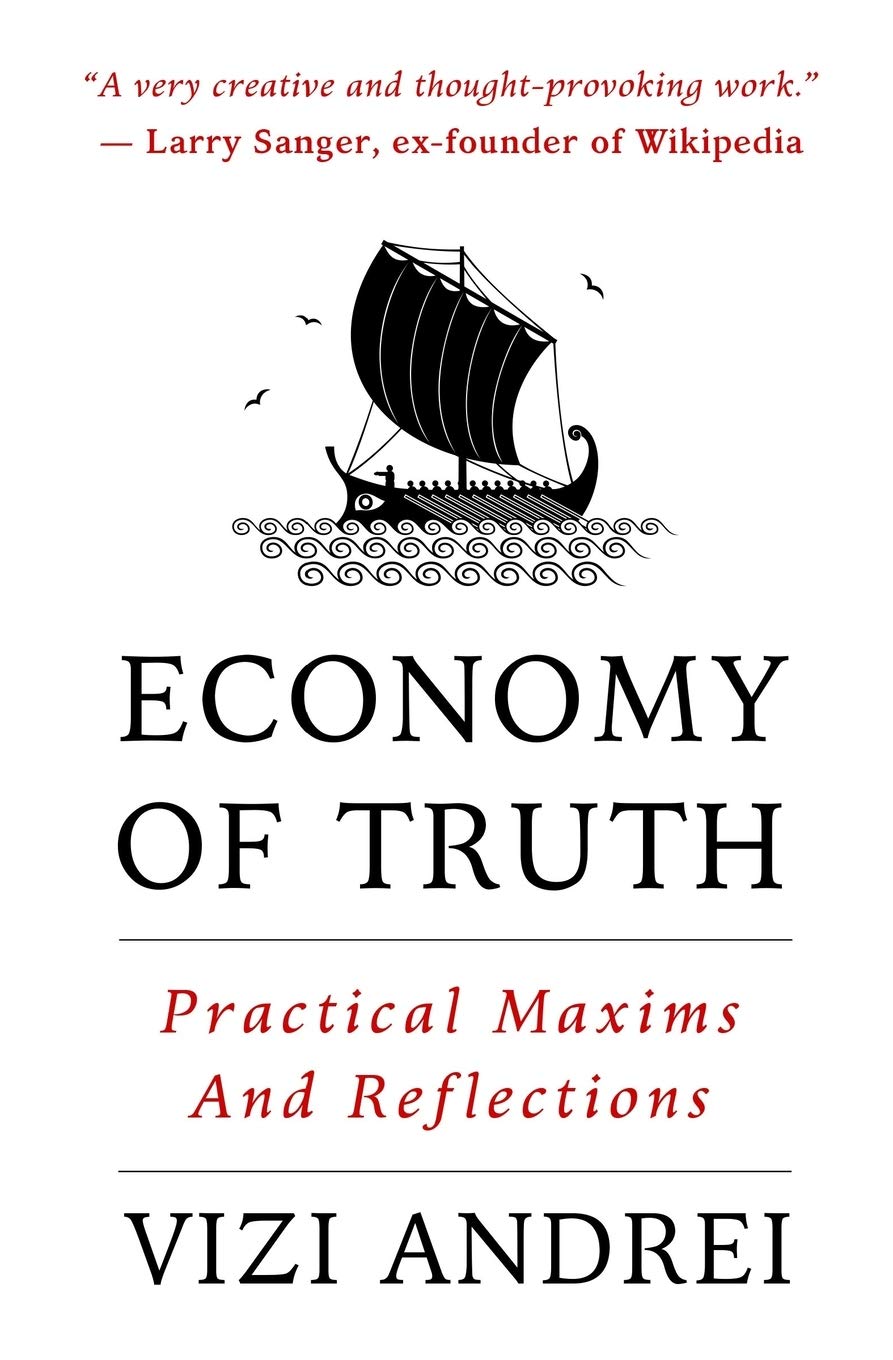
Notes on
Economy of Truth
by Vizi Andrei
• 2 min read
Here’s when maxims come to the rescue. Maxims represent crisp, well-decorated, rhetorical, and seemingly universal rules which help us conduct ourselves in the world.3 They are compound ideas distilled into a few words. They do not exhaustively match the reality – but rather render it bearable. They are framed in such a manner that they maximize utility while advancing or at least not degrading the truth. Simply put, maxims foster an economy of truth. The notion of “economy of truth” is a compromise between wisdom and knowledge, truth and utility, argument and action, and science and meaning.
Maxims and the economy of truth
Instead of expecting maxims to resonate with you, develop a state of mind so that you seek to resonate with them.
Maxims are not meant to be universally applicable. Try to stop expecting them to resonate with you, and instead, try resonating with them.
Carl Jung brilliantly noted: “Everything that irritates us about others can lead us to an understanding of ourselves.”
And, Hermann Hesse beautifully stretched a similar thought: “If you hate a person, you hate something in him that is part of yourself.”
Your opinion of others reflect nothing of them, but all of you.
In an abundant world, productivity is about eliminating bad habits; then adding good ones.
In an abundant world, knowledge is about filtering, rather than gathering, information.
In an abundant world, discipline is the new freedom.
In an abundant world – less is more; and more is less.
Via Negativa - we gain by subtracting.
Liked these notes? Join the newsletter.
Get notified whenever I post new notes.